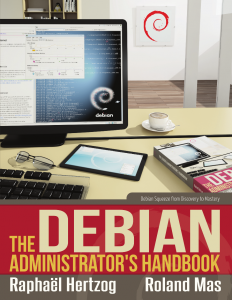This is my monthly summary of my Debian related activities. If you’re among the people who made a donation to support my work (186.38 €, thanks everybody!), then you can learn how I spent your money. Otherwise it’s just an interesting status update on my various projects.

Dpkg News
For the first time since several years, there has been a dpkg release (1.16.3) where the changelog doesn’t contain any entry of my own. The 3-4 commits I did were not really worthy of a changelog entry. I must admit that it was easy to put dpkg aside given Guillem’s message and given how busy I have been with my other projects.
Keeping a low-profile for a while certainly doesn’t hurt. But I don’t intend to stop contributing to dpkg. Quite on the contrary in fact, it’s something that I (usually) enjoy doing.
Packaging News
I packaged a new upstream release of SQL-Ledger (3.0.0) and later in the month I sponsored the upload of LedgerSMB, a fork of SQL-Ledger which — unlike the former — is maintained like a typical free software project.
I also uploaded version 0.56 of Zim and updated WordPress to version 3.3.2 with its slew of security fixes.
The Debian Administrator’s Handbook
Like several months now, most of my time has been directed towards the Debian Administrator’s Handbook. The big news is that the liberation fund has been completed… this means that the book will be published under DFSG-free licenses from the start (GPL-2+ / CC-BY-SA 3.0).
We hope to publish the book next week (i.e. between May 7th and May 11th). The PDF output for the printed book is almost ready. There’s some work left for the HTML/EPUB output and we have to prepare for the release of the sources as well…
Hopefully everything will work out like planned. Stay tuned!
Thanks
See you next month for a new summary of my activities.


